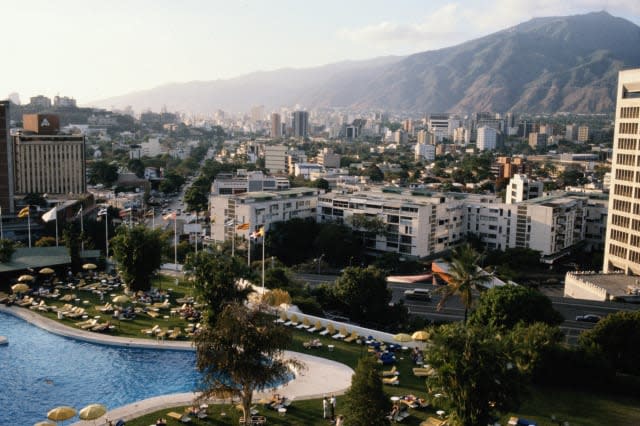Venezuela eases power rationing, ends two-day working week

Venezuela's socialist government on Monday eased a nationwide energy-saving program, bringing to an end a controversial two-day work week since April for nearly 3 million public sector workers.
Electricity Minister Luis Motta said that thanks to rising waters at the Guri reservoir, which supplies two-thirds of the OPEC nation's electricity, state workers would return to work until 1 p.m. on Wednesdays, Thursdays and Fridays.
Weekend electricity rationing would also end, and schools, which had been closing on Fridays as another energy-saving move, would return to opening for the whole week, the minister said.
"We are winning!" he said via Twitter.
Officials say the measures were an emergency response to drought this year and have helped reduce energy consumption in the nation of 30 million people.
But critics, including the opposition coalition, have slammed the moves, saying closing schools for one day a week prejudiced children while sending state employees home made no difference because they would simply use appliances elsewhere.
They say the socialist government is to blame for electricity shortages due to corruption, lack of investment and poor management, rather than the El Nino weather phenomenon.
Power and water cuts in recent months have added to the hardships of Venezuelans, already enduring a brutal economic slowdown, shortages of basics from milk to medicines, soaring prices and long lines at shops. (Reporting by Diego Ore; Writing by Andrew Cawthorne; Editing by Sandra Maler)



